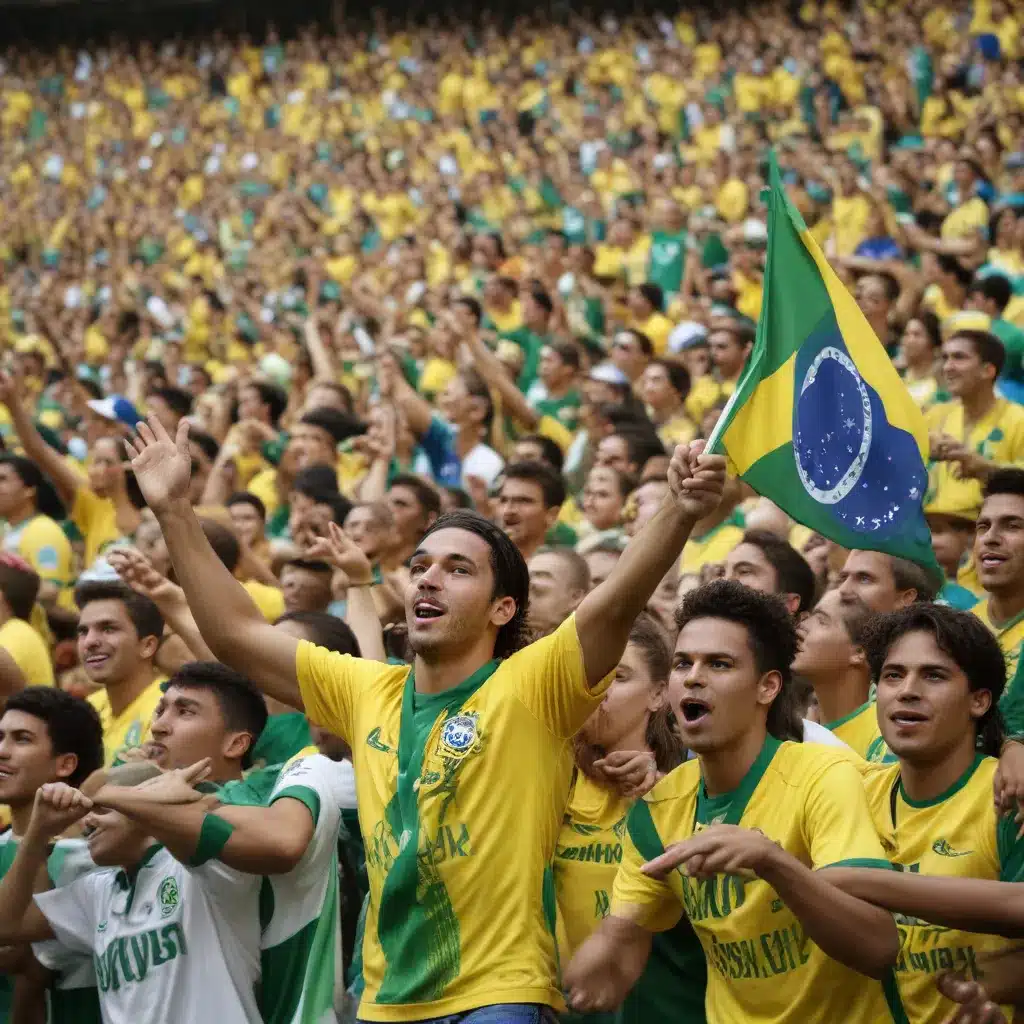
Brazilian Football Culture
Football in Brazil is more than just a sport – it is a way of life, a source of national pride, and a unifying force that transcends social and economic boundaries. At the heart of this vibrant football culture are the passionate supporters, whose unwavering loyalty, fervent chants, and infectious enthusiasm have become an integral part of the game.
Fan Participation
In Brazil, being a football fan is not a passive activity. Supporters are active participants in the game, their voices and actions shaping the very fabric of the sport. From the terraces to the streets, fans engage in a dynamic dialogue with their beloved clubs, influencing decision-making, driving the club’s identity, and even impacting the performance of the players on the pitch.
The concept of “fandom as active engagement” is particularly prevalent in Brazil, where supporters see themselves as an extension of the team. Fans don’t merely cheer from the sidelines; they feel a deep emotional connection to their club, a sense of ownership that extends far beyond the 90 minutes of a match. This level of involvement is reflected in the ways fans organize themselves, from the formation of ultras groups to the coordination of large-scale choreographies and tifo displays.
The influence of Brazilian football supporters on their clubs is undeniable. Passionate fan bases have been known to sway transfer decisions, pressure for the dismissal of underperforming managers, and even mobilize resources to support their team financially. This symbiotic relationship between fans and clubs has given rise to a unique dynamic, where supporters are not merely passive consumers but active stakeholders in the success and identity of their beloved institutions.
Football Club Identity
Brazilian football clubs have long recognized the importance of their supporters in shaping their brand and identity. From the iconic jerseys and emblems to the chants and rituals that define each team, the influence of fans is ever-present.
The role of organized fan groups, known as “torcidas organizadas,” is particularly significant in this regard. These passionate collectives, often aligned with specific ideological or political leanings, have become integral to the fabric of their clubs. They not only lead the matchday atmosphere with their synchronized chants and displays but also play a crucial role in the club’s decision-making processes, offering feedback and even exerting pressure on the management.
The ultras, in particular, have become the embodiment of the club’s identity, their unwavering support and unwavering loyalty serving as a rallying cry for the entire fan base. From the iconic banners and flags that adorn the stands to the intricate choreographies that captivate the crowd, the ultras have become the custodians of their club’s heritage, ensuring that the traditions and values of the past are preserved and celebrated in the present.
Supporter Rituals and Traditions
The matchday experience in Brazilian football is a unique blend of passion, tradition, and spectacle. Supporters engage in a rich tapestry of rituals and customs that have been passed down through generations, creating an atmosphere that is unmatched in the world of football.
The pre-match chants and songs, often rooted in local folklore and historical events, are a hallmark of the Brazilian football experience. From the thunderous “Olé, Olé, Olé, Olé, Olá, Flamengo!” to the haunting melodies of the “Hino do Botafogo,” these anthems serve as a unifying force, binding the supporters together in a shared expression of their love for the game.
The visual displays, known as “tifos,” are another testament to the creativity and dedication of Brazilian football fans. Intricate choreographies, giant banners, and dazzling pyrotechnics transform the stadiums into a canvas for the supporters’ artistic expression, creating a spectacle that is both visually stunning and emotionally charged.
The matchday atmosphere in Brazilian football is not limited to the stands, however. The streets outside the stadiums are a hive of activity, with fans gathering for pre-match celebrations, sharing stories, and engaging in the time-honored traditions of the game. The sound of drums, the chanting of slogans, and the sight of vibrant flags and banners create a palpable sense of excitement and community, a reminder of the deep-rooted connection between the fans and their beloved clubs.
Socioeconomic Impact of Brazilian Football Supporters
The influence of Brazilian football supporters extends far beyond the confines of the stadium, with their passion and dedication having a significant socioeconomic impact on the communities they serve.
The commercialization of football in Brazil has led to a burgeoning fan consumerism, with supporters eagerly embracing the opportunity to show their allegiance through the purchase of merchandise, tickets, and other club-related products. This influx of revenue has been a crucial source of income for many clubs, allowing them to invest in player development, infrastructure, and other initiatives that benefit the wider community.
But the impact of Brazilian football supporters goes beyond mere financial considerations. Many fan groups and organized supporter collectives have actively engaged in social development projects, using their platforms to address issues such as education, healthcare, and poverty alleviation. These initiatives, often driven by the supporters themselves, have become a testament to the power of football to bring people together and drive positive change.
The matchday experience in Brazilian football is also a significant contributor to the local economy, with supporters flocking to stadiums, bars, and restaurants, creating a thriving ecosystem of businesses that rely on the passion and loyalty of the fans. This economic impact extends beyond the immediate vicinity of the stadiums, with the ripple effects being felt throughout the region and even the country as a whole.
In a country where football is so deeply ingrained in the national psyche, the role of the supporters cannot be overstated. They are not mere spectators, but active participants in the game, shaping the identity, culture, and socioeconomic landscape of Brazilian football. As the game continues to evolve, it is the unwavering commitment and boundless enthusiasm of the fans that will ensure the enduring legacy of this beloved sport.

